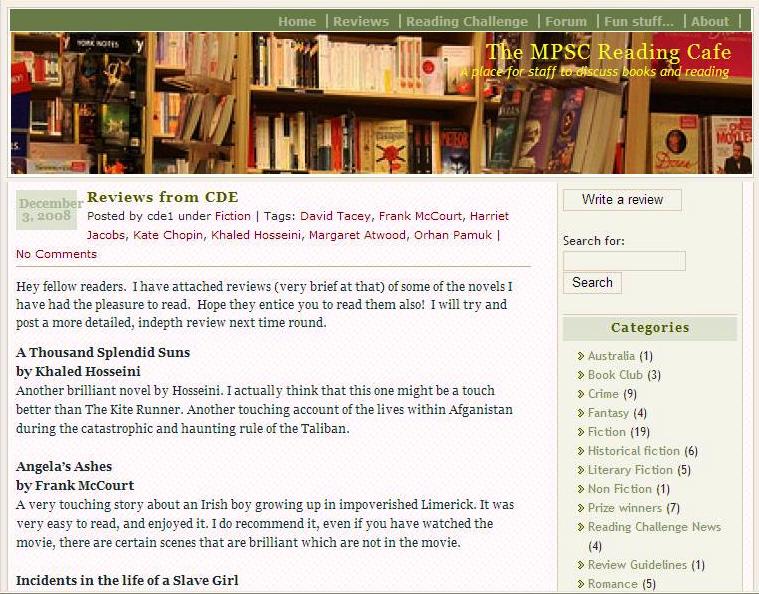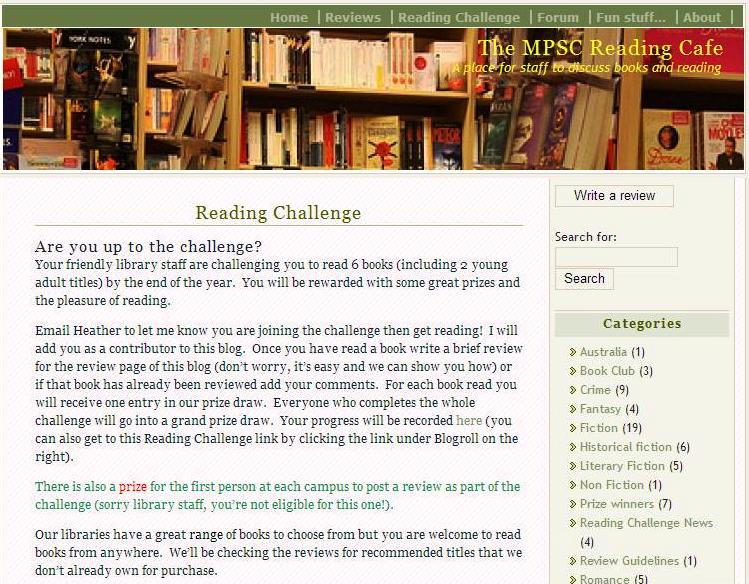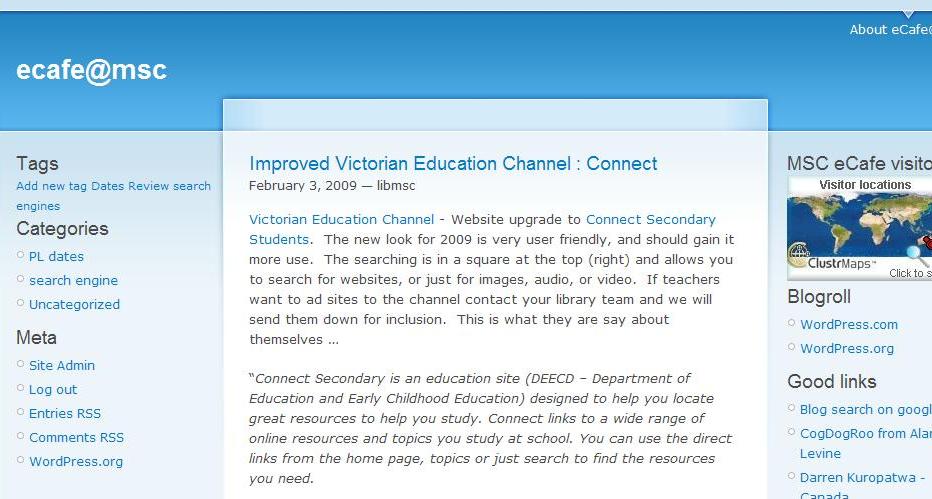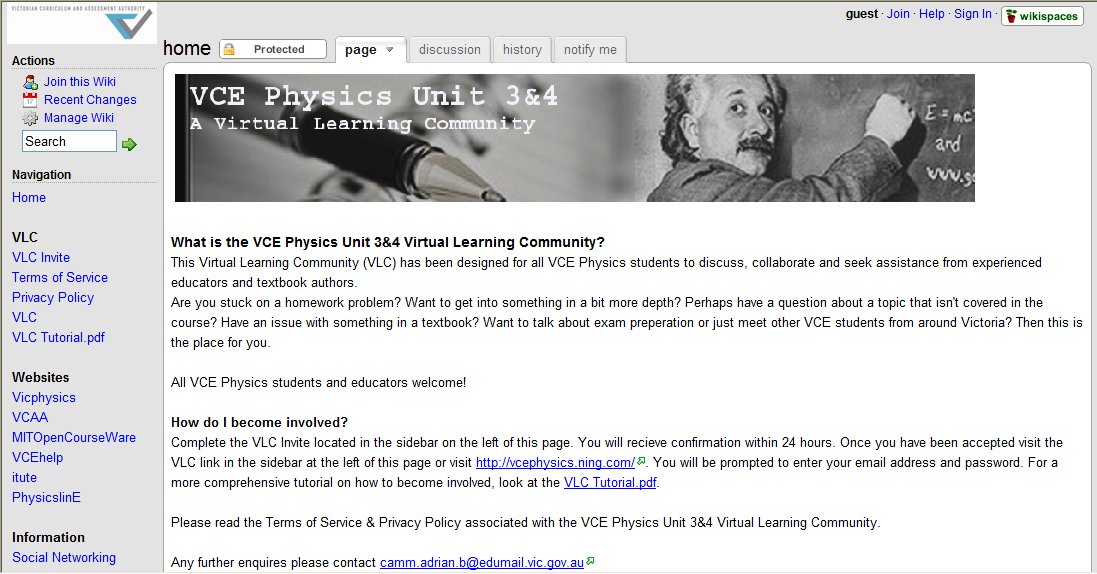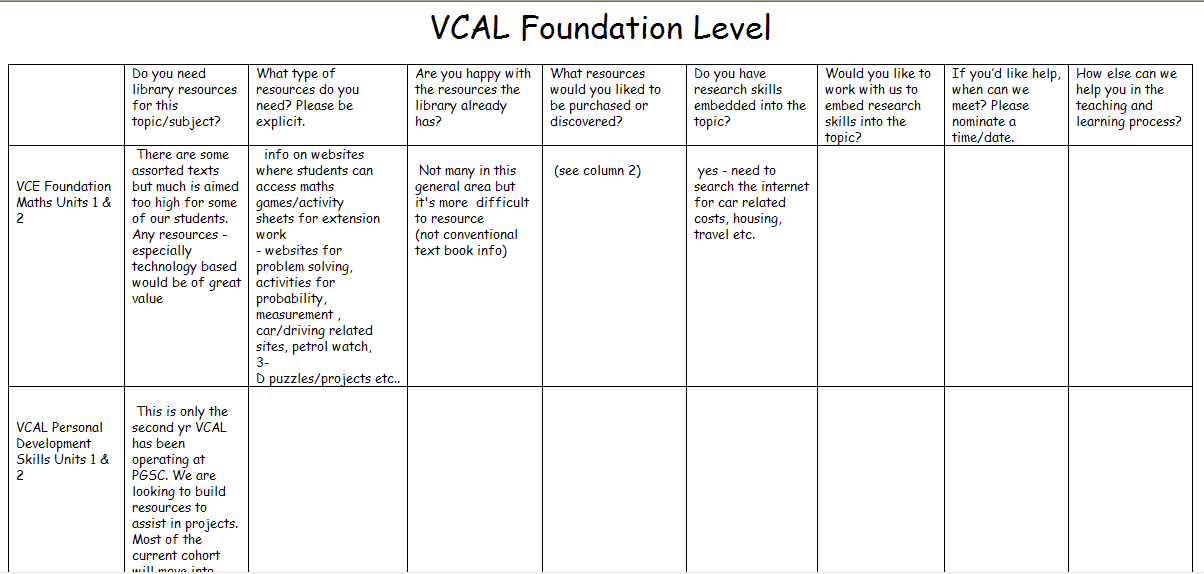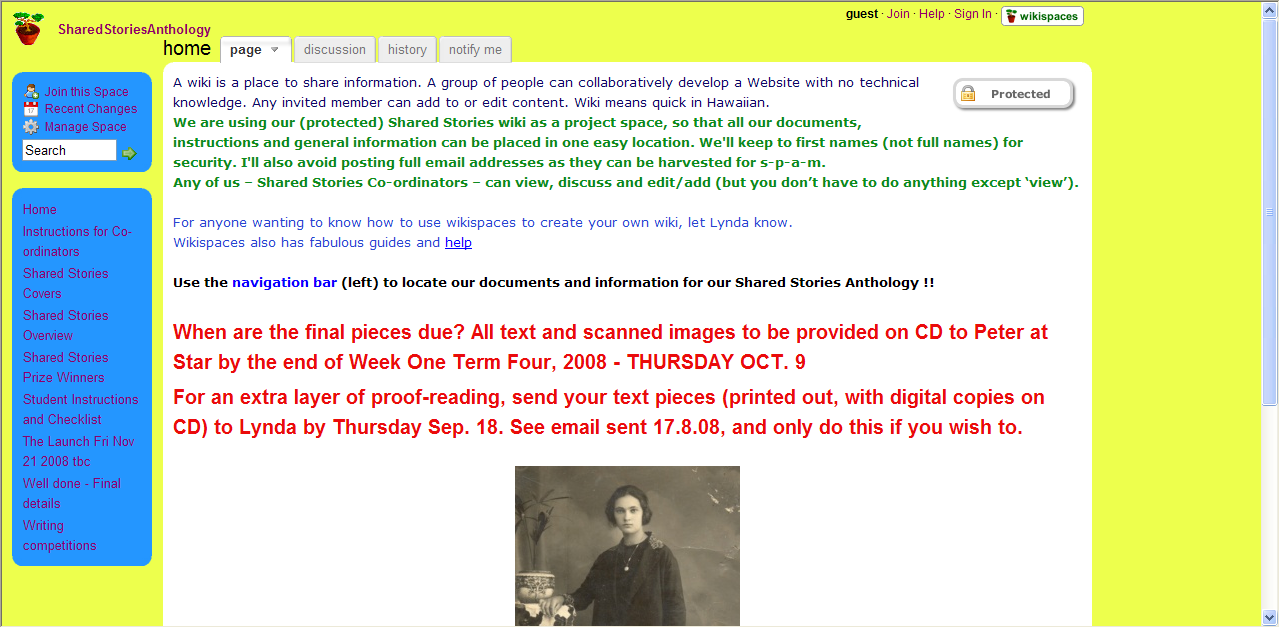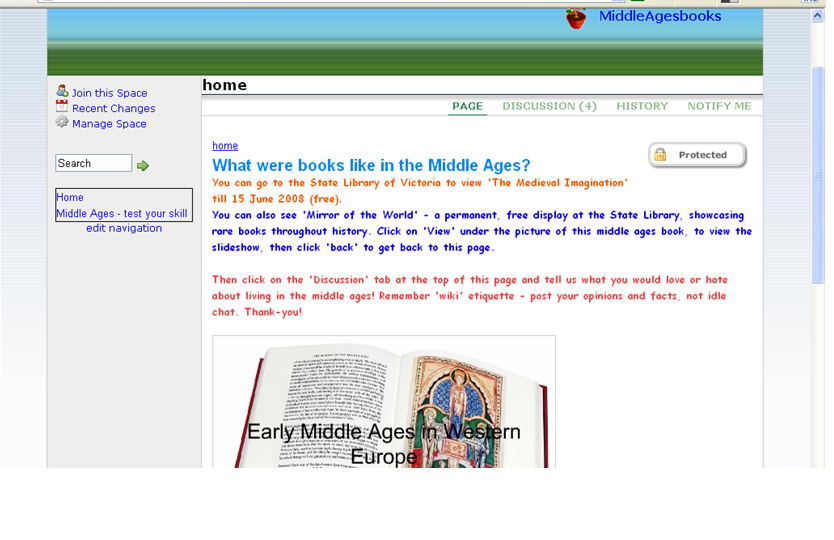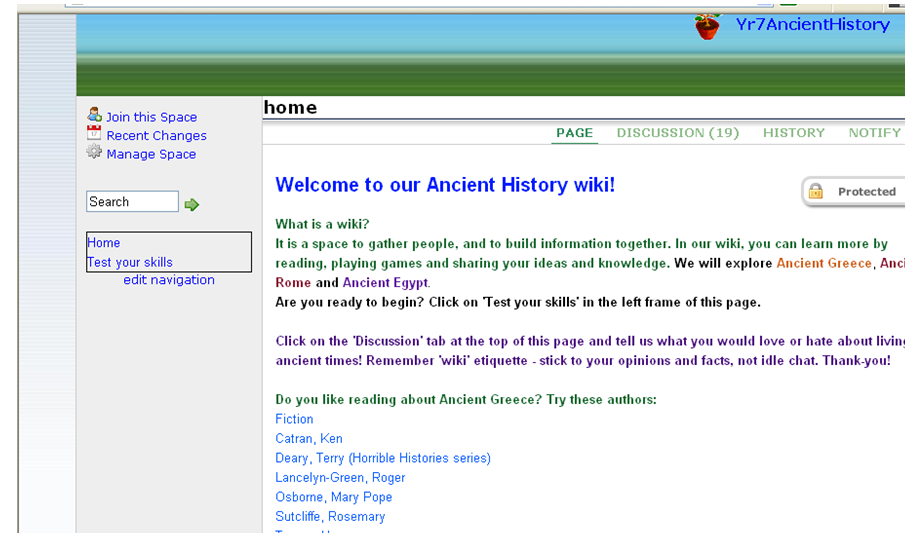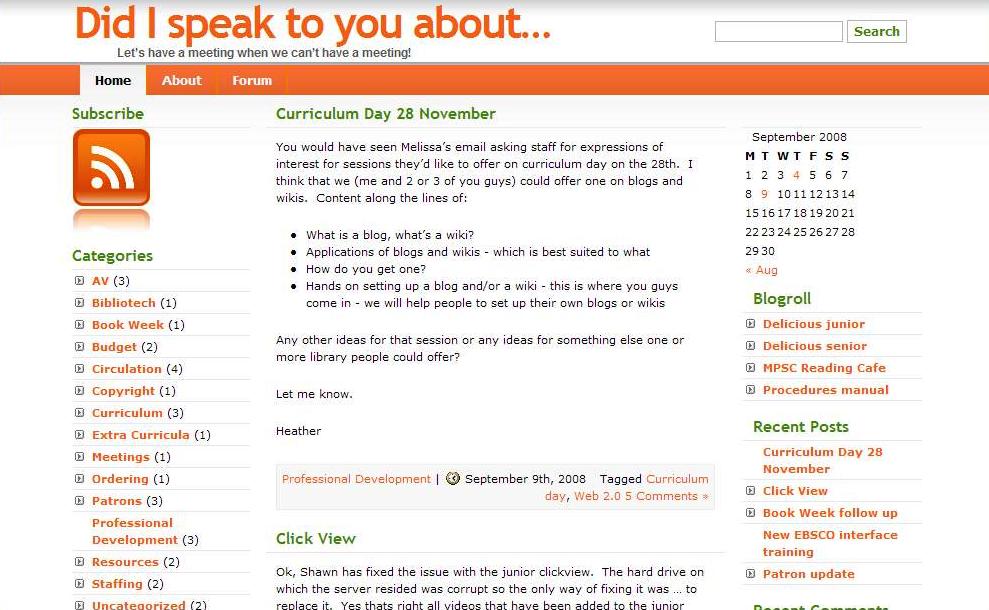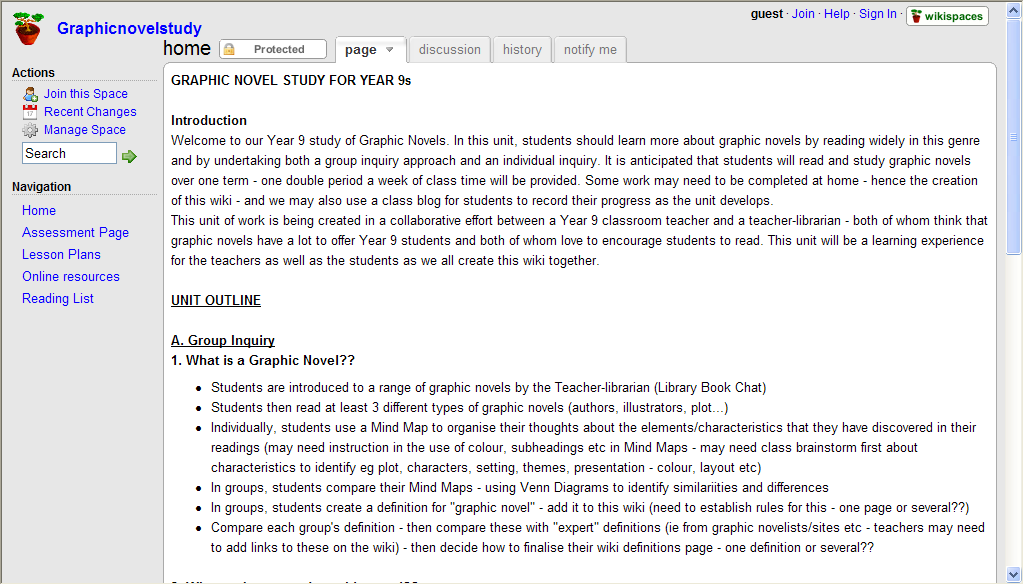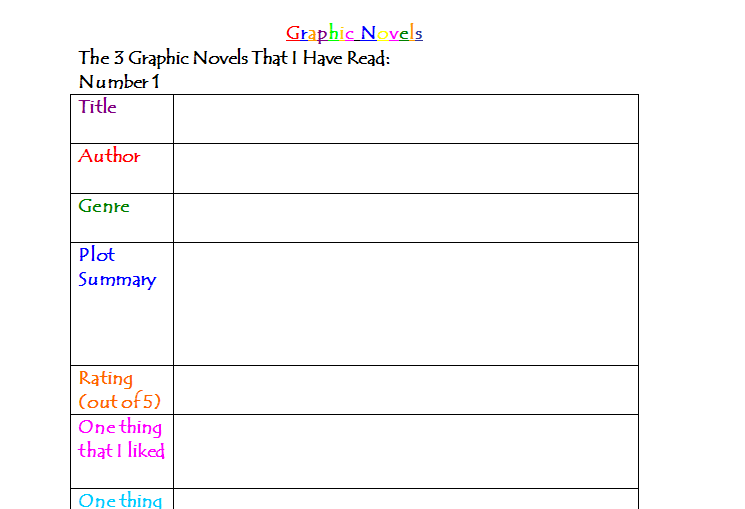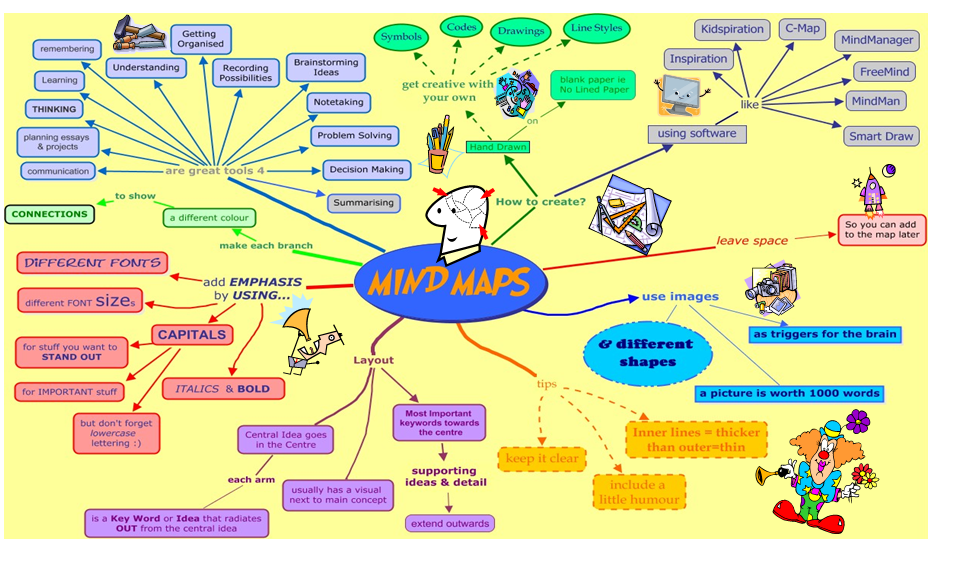Mill Park Secondary College teacher librarian and ICT Coach Heather Bailie has developed an interesting book blog.
Heather says, ‘The Reading Café is a site that has been set up directly as a result of the library staff at MPSC completing the SLAV Web 2.0 course. The Reading Cafe is a place for staff to discuss books and reading. I set this up with a dual purpose:
1. ‘As a place to consolidate reviews and recommendations for reading by and for staff. We have many avid readers on staff and we try to cater for their reading, almost as much as the students, particularly through the senior campus fiction collection. In our busy lives it is not always possible to share our good reading experiences in person- this site aims to provide that experience asynchronously (now there’s a word I’ve only dared use since blogging!)
2. ‘As a gentle means to encourage other staff to delve into the world of blogs, and, for some, to introduce the concept to them. For many teachers the idea of writing for a blog is totally foreign; they fear the unknown and don’t believe (wrongly) they have the necessary skills.
‘At first there wasn’t a competitive element to this but speaking to an old friend (Melbourne State College 1982!) at a SLAV conference I decided to adopt her idea of a teacher’s reading challenge modelled on the Premier’s Reading Challenge. I challenged staff to read 6 books by the end of the year, 2 of which must be designated “young adult”. To record books read they must post a review on the blog or, if that book has been previously reviewed, make a comment on the original post.’
She continues, ‘Initially, to get some content on the site, I encouraged everyone at school who was doing the SLAV Web 2.0 course to post some reviews. I also selectively invited some other people who I knew would be interested (either from the blogging perspective or as readers) to visit and contribute. Once we had a body of reviews, about 15, I launched the site at each campus at morning teas hosted by the two campus libraries. It has certainly generated a lot of interest although perhaps not as much activity as I would like. I’m starting to hand out some random prizes so there may be more activity soon. I think that goal 2 has been at least partly achieved – plenty of people look. I’m very grateful to my wonderful library staff who have enthusiastically posted reviews to the site. To record people’s progress on the challenge I adopted the SLAV Web 2.0 course idea of using a google spreadsheet – it is linked from the site.’
Heather says that she will be doing a new year re-launch of the blog shortly. Well done Heather and Mill Park Secondary College staff that have contributed to the blog.

